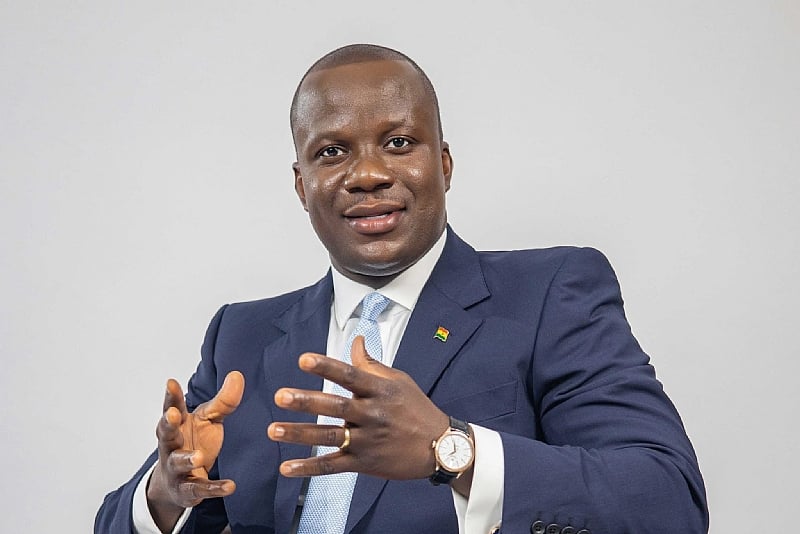Samuel Abu Jinapor, the Ranking Member of Parliament’s Foreign Affairs Committee, has formally requested the intervention of Ghana’s Diplomatic Corps in the unfolding controversy surrounding suspicious flights allegedly carrying illicit narcotics and money into the country. These flights, operated by AirMed and Cavok Air, landed at Kotoka International Airport in March 2025, raising concerns about potential breaches in national security and Ghana’s commitment to international conventions against transnational organized crime. Jinapor believes the Diplomatic Corps, with its access to international intelligence networks, can play a crucial role in supporting Ghanaian authorities in uncovering the truth behind these suspicious landings. His appeal is particularly directed towards the Dean of the Diplomatic Corps and the Lebanese Ambassador to Ghana, urging them to leverage their diplomatic channels to facilitate collaboration between international security agencies and Ghana’s intelligence community.
The controversy gained momentum following a press conference held by the Minority Caucus on April 1st, 2025, during which they highlighted several security concerns, including the questionable nature of the AirMed and Cavok Air flights. Subsequently, the President of Ghana directed state investigative agencies to probe the matter. However, the Minister of State in charge of Government Communications seemed to contradict the President’s directive, dismissing the allegations and downplaying the need for an investigation. This conflicting stance further fuels suspicions and underscores the urgency of a thorough and impartial inquiry. Independent investigations have subsequently corroborated the Minority’s claims, revealing discrepancies between official narratives and the actual flight paths of the AirMed aircraft, raising further questions about the legitimacy of the operations.
Jinapor’s call for diplomatic intervention is rooted in Ghana’s commitment to international conventions against drug trafficking and money laundering. As a signatory to treaties such as the Single Convention on Narcotic Drugs and the UN Convention against Transnational Organized Crime, Ghana has a legal and moral obligation to investigate these allegations thoroughly. Failure to do so, Jinapor argues, could severely damage Ghana’s international reputation and potentially turn the country into a transit point for illicit activities, with dire consequences for regional stability and security. He emphasizes that investigating such allegations is not merely a matter of national interest but a crucial step in upholding global efforts to combat transnational crime.
The Ranking Member’s letter to the Diplomatic Corps outlines five specific requests. He urges the diplomatic missions to share any relevant intelligence they possess regarding the aircraft and flights in question and to facilitate collaborative investigations with Ghanaian security agencies. Furthermore, he calls upon the Diplomatic Corps to support Ghana’s efforts to avoid the stigma of becoming a narco-state and to encourage the government to establish a Commission of Inquiry, as per Article 278 of the Constitution, to ensure a comprehensive and impartial investigation into the matter. This Commission would have the authority to summon witnesses, gather evidence, and issue recommendations to address the identified issues.
Jinapor’s final request emphasizes the importance of safeguarding the independence of Ghana’s Parliament and ensuring the protection of whistleblowers. He specifically highlights the need for the safety of John Ntim Fordjour, the Member of Parliament for Assin South and Ranking Member of Parliament’s Defence and Interior Committee, who has been vocal about the flight controversy. Protecting whistleblowers is vital for fostering transparency and accountability, particularly in matters of national security. It allows individuals to come forward with crucial information without fear of reprisal, contributing to a more robust and trustworthy system of governance.
The urgency of this situation is undeniable. The allegations, if proven true, represent a serious threat to Ghana’s security and its standing within the international community. A swift and comprehensive investigation, facilitated by international collaboration, is crucial to uncover the truth, hold those responsible accountable, and strengthen Ghana’s fight against transnational organized crime. The involvement of the Diplomatic Corps, with its global reach and diplomatic influence, could be instrumental in ensuring a thorough and transparent investigation, sending a strong message that Ghana is committed to upholding its international obligations and maintaining its integrity on the global stage. Addressing this issue decisively will not only protect Ghana’s national interests but also contribute to broader international efforts to combat the pervasive threats of drug trafficking and money laundering.














